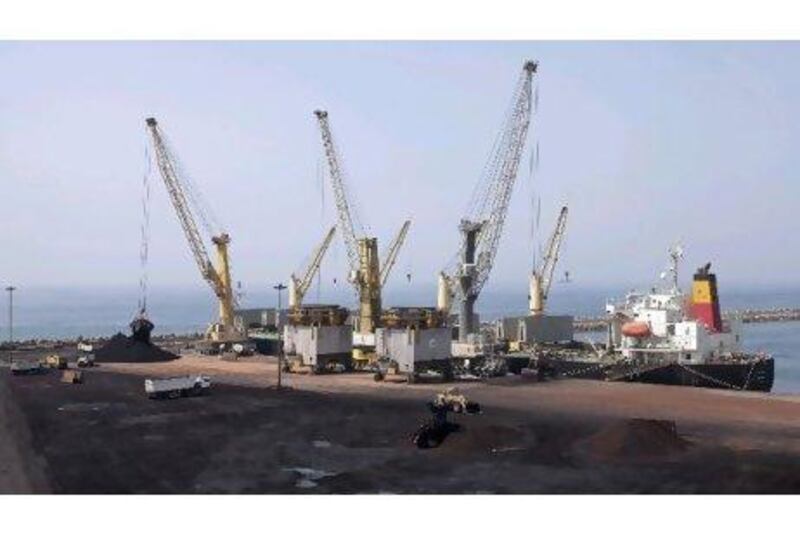DUBAI // Security companies that provide ships with armed guards to deter pirates are lobbying for permission to store weapons in UAE ports.
One company in Ras Al Khaimah says it has secured approval in the emirate and is seeking a federal licence.
Many companies now keep their weapons in Sri Lanka, Oman and Djibouti, which ring the high-risk waters of the Gulf of Aden, Arabian Sea and parts of the Indian Ocean. Other countries in the region, such as Egypt, are also being solicited for arms-storage arrangements.
UAE ports would provide a more direct stop for ships entering the Gulf from the east after hugging the coast of Pakistan. Otherwise they must detour to Muscat to unload their weapons and guards, or pay to carry them unnecessarily in the Gulf, where pirates do not operate.
In states where weapons cannot be stored, ships must report them before arriving at port, have them locked up or taken away, and take the weapons when they leave. Guards must stay with the weapons, adding to costs.
"The shipowner won't want to keep them on if he's not required because he's being charged for them," said Nick Davis, the chief executive of Maritime Guard Group.
"And the second the ship comes into the Arabian Gulf, I want to be able to disembark with those weapons and I want to be able to get them on a different ship the same day or the next day going back outbound to a different destination."
Mr Davis said Ras Al Khaimah had agreed to store company arms in Saqr Port under the control of the emirate's Local Guard, but he is not sure if the federal government will give approval.
He said he knew of only five armed-guard companies in 2008 but more than 200 today. They are competing not only on convenience but also cost and quality.
The shipping industry has suffered from the economic downturn and the rising cost of protecting and insuring against piracy.
Maritime Guard Group offers a lower rate for Filipino than western guards: a few thousand dollars a month against a few thousand dollars a day.
Although the latter are perceived to be more capable, Mr Davis said, both were adequate to ward off pirates, who had poor shooting skills and tended to avoid ships with armed guards in favour of easier targets.
"You have to look at the threat," he said. "Does that need a special-forces soldier from the UK?"
G4S International Maritime Solutions in Dubai employs only former navy special forces from France and Britain. Shipping compaies increasingly seek professionalism, said its regional commercial manager, Andrew McCarthy.
They were more likely than before to question rules of force and ask to see licences, and ship insurers were scouring security contracts. As a result, he said, the number of companies thinned over the past year, though competition remains stiff.
"The companies that are involved now are very much more professional than they were," Mr McCarthy said.
A key concern about armed guards is inadequate regulation, whether by countries where the companies are based, the flag states to which ships belong, or an industry body called the Security Association for the Maritime Industry, which aims to regulate itself.
The fear is that "cowboy" teams might kill innocent seamen and fail to report incidents.






